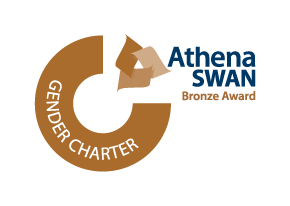MSc Architecture, Urbanism & Climate Action
Urban environments and their buildings are placing unprecedented stress on earth system processes, while simultaneously being critical sites for climate action. The MSc in Architecture, Urbanism and Climate Action (MAUCA) programme equips graduates and returning professionals with specialist skills to respond to the challenge of planning, designing, and realising a resilient and sustainable built environment. The School of Architecture, Planning and Environmental Policy (APEP) brings together four key disciplines to provide a unique graduate learning experience.
Core modules are specifically designed to enhance knowledge of climate science and policy, GIS, systems thinking, and environmental ethics, as well as to develop skills for low carbon, sustainable and inclusive building and urban design. Optional modules have been selected from a wide range of schools across UCD, including Architecture, Planning, Environmental Policy, Geography, Biosystems Engineering, Economics and Law. Students undertake a Linked Research Project in the summer trimester that offers 3 options: developing individual research studies through a thesis; a placement on a prestigious EU or nationally funded collaborative research project within UCD on a relevant topic; or a placement with a company leading the agenda on low-carbon, sustainable building and urban design. Many students have continued to work for their placement research projects or companies after graduating.
HIGHLIGHT:
The UCD School of Architecture, Planning & Environmental Policy has an established international track record as a leading research centre in sustainable building and city research with large national and international funded projects. It is in the Top 150 QS World University Rankings by subject area, and has long led the way in architectural and urban design study and practice in Ireland.
LEADING RESEARCH CENTRE:
The UCD School of Architecture, Planning & Environmental Policy has an established international track record as a leading research centre in sustainable building and city research with large national and international funded projects. It is in the Top 150 QS World University Rankings by subject area, and has long led the way in architectural study and practice in Ireland.
FACILITIES AND RESOURCES
The School of Architecture, Planning & Environmental Policy offers dedicated studio space for its students, a dedicated architecture library and map room, access to fully equipped computer facilities, a building laboratory space with a wide range of equipment including laser cutters and a CNC router, and access to monitoring and simulation equipment in the Earth Institute.
Why UCD
Architecture at UCD is highly attractive to students due to the exposure to world leading researchers and the significant career prospects.
- O’Donnell + Tuomey, RIBA Gold Medal Winners 2015
- UCD is ranked in the top 1% of higher education institutes worldwide.
- Degrees with high employability with dedicated careers support.
- Alumni & Adjunct Professors, Shelley MacNamara & Yvonne Farrell Grafton Architects, Winners of RIBA International Prize
- Ireland’s largest and most international university.
- Established in 1854 with 160 years of teaching and research excellence.
What will I study?
Core modules are specifically designed to enhance knowledge of Sustainable Development Goals, climate science and policy as well as skills for sustainable building and urban design. Options will allows students choose from a wide range of architecture, planning and policy based modules, as well as energy and sustainability modules from around the University. Linking to prestigious industry-collaborative research projects will allow students action their research and knowledge to advance careers in sustainable practice, consultancy, policy and academia.
In the final trimester students will complete a linked research project.
This can take the following 3 forms;
Option 1: Placement with a linked employer. The student will undertake a programme of work for an industry or public body. The work will be agreed between the student, academic supervisor and the placement host if a suitable option is available.
Option 2: Working on established industry-collaborative research projects as part of a research team in the fields of architecture or urbanism, or related areas including; energy efficient buildings, smart cities, climate action policy research etc.
Option 3: Individual study in a research area of choosing by the student and agreed with the module coordinator.
The pathway mode involves part-time study in the autumn and spring of years 1 and 2, and in the spring and summer of the final year. This may be completed in three to four (maximum) academic years.
Core Modules Include:
- Architecture and Climate Change
- Sustainable Built Environments
- GIS for Policy and Planning
- Urban Design Theory
- Research Methods into Action

Career Opportunities:
This MSc gives students a unique set of skills to allow them stay ahead of the curve and apply for exciting and fulfilling job opportunities in rapidly expanding sectors in which there is a growing demand. Potential careers include in low carbon and sustainable architecture, landscape architecture and urban design; strategic design and change management; policy and governance; and environmental, building or energy engineering. The MSc can also be a springboard into exciting careers in research and academia. It allows students to pursue further research opportunities into topics covered by the modules, and to contribute to a better understanding of how the building and urban design professions can best respond to the climate and biodiversity emergencies in an uncertain future. High achieving graduates of the course have gone on to doctoral studies in UCD, either via in-house opportunities on EU funded projects or through national funding schemes from the Irish Research Council.
Entry Requirements:
A primary undergraduate degree with a minimum upper second class honours (NFQ level 8; minimum GPA 3.08) or international equivalent in subjects related to the built environment
including architecture, urban design, engineering, environmental sciences, or humanity degrees involving social or natural sciences.
Applicants whose first language is not English must also demonstrate English language proficiency of IELTS 6.5 (no band less than 6.0 in each element), or equivalent.
Other programmes of interest:
Master of Architecture MSc Environmental Technology MSc Urban Design & Planning ME Energy SystemsMore Information:
See course details How to Apply Fee Information Ms Sumita RoySumita.Roy@ucd.ie
+353 1 716 1916 Connect with us






